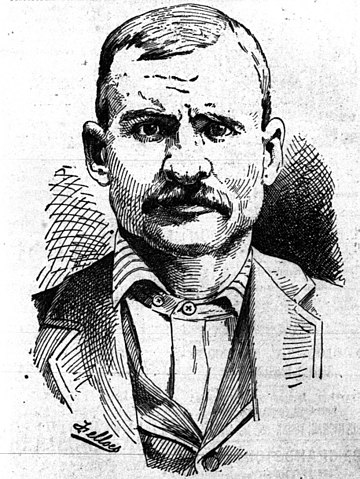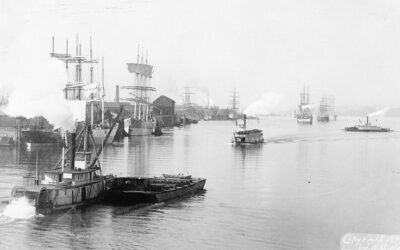
Joseph “Bunco” Kelly, a notorious figure in Portland, Oregon’s history, carved a unique niche for himself in the late 19th and early 20th centuries. Known as a “crimp” or “shanghaier,” Kelly’s infamy arose from his role in the practice of “shanghaiing” – the kidnapping of men to serve as sailors on merchant ships against their will. His nickname “Bunco” derived from his use of deceitful and coercive tactics to lure or force men into service, often earning a commission from ship captains desperate for crew members.
Kelly operated during a period when Portland was a bustling port city with a high demand for sailors. The practice of shanghaiing thrived due to this demand and the relative lack of stringent law enforcement in port cities. Sailors were often in short supply because of the harsh conditions and low pay associated with maritime work. Ship captains, facing the prospect of delayed voyages and financial losses, turned to crimps like Kelly to fill their crews by any means necessary.
Forgotten Portland: Council Crest Amusement Park
Kelly’s methods were varied and often ruthless. He frequented saloons and boarding houses, preying on men who were drunk, drugged, or otherwise incapacitated. Sometimes, he used outright deception, promising jobs or opportunities that didn’t exist. Other times, he would simply kidnap men outright, having them ambushed and forcibly taken to waiting ships. One of his most infamous exploits involved a group of men he reportedly “recruited” from a funeral, substituting their caskets with large rocks to simulate the weight of bodies, while the men found themselves waking up at sea.
The Shanghai Tunnels, a series of underground passages in Portland, played a significant role in Kelly’s operations. These tunnels connected various parts of the city, including the waterfront, and were used to transport shanghaied men discreetly. While the full extent of the tunnels’ use in shanghaiing is debated, they have become a part of the local lore, with Kelly often at the center of these stories.
Despite his criminal activities, Kelly was known to possess a certain charm and cunning that allowed him to evade capture and prosecution for many years. His operations were conducted with a degree of organization and sophistication that kept him one step ahead of the law. He was adept at exploiting the legal and social environments of the time, which were often lax and corrupt.

Kelly’s notoriety reached its peak during the 1890s, a time when Portland’s reputation for vice and lawlessness was at its height. However, as the 20th century approached, increased law enforcement efforts and changes in maritime practices began to curtail the activities of crimps. Kelly’s operations gradually diminished, and he faded from prominence, leaving behind a legacy entwined with Portland’s maritime history.
It’s evident that Joseph “Bunco” Kelly was a product of his times, exploiting the economic and social conditions of a burgeoning port city. His story is a testament to the darker aspects of Portland’s history, a reminder of a time when lawlessness and exploitation were rampant. Today, Kelly’s exploits are a part of Portland’s colorful folklore, illustrating the city’s complex and often turbulent past. His legacy, though steeped in criminality, continues to captivate the imagination, symbolizing an era of rough-and-tumble opportunism in the American West.

That was seriously fascinating! I had read about crimps in relation to English ports, but for some reason didn’t stop to think it happened in my own back yard. Thanks for the excellent read Steve!